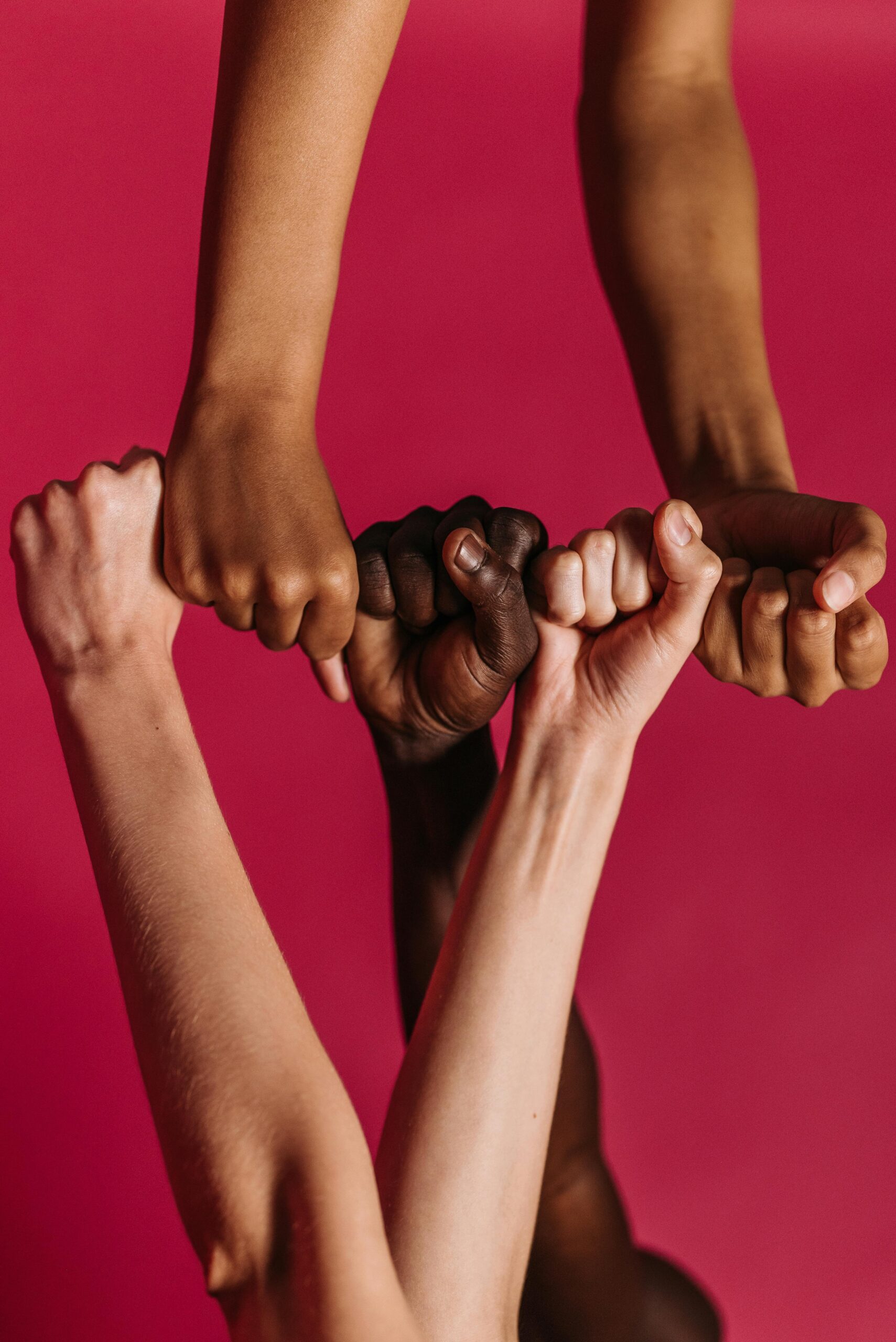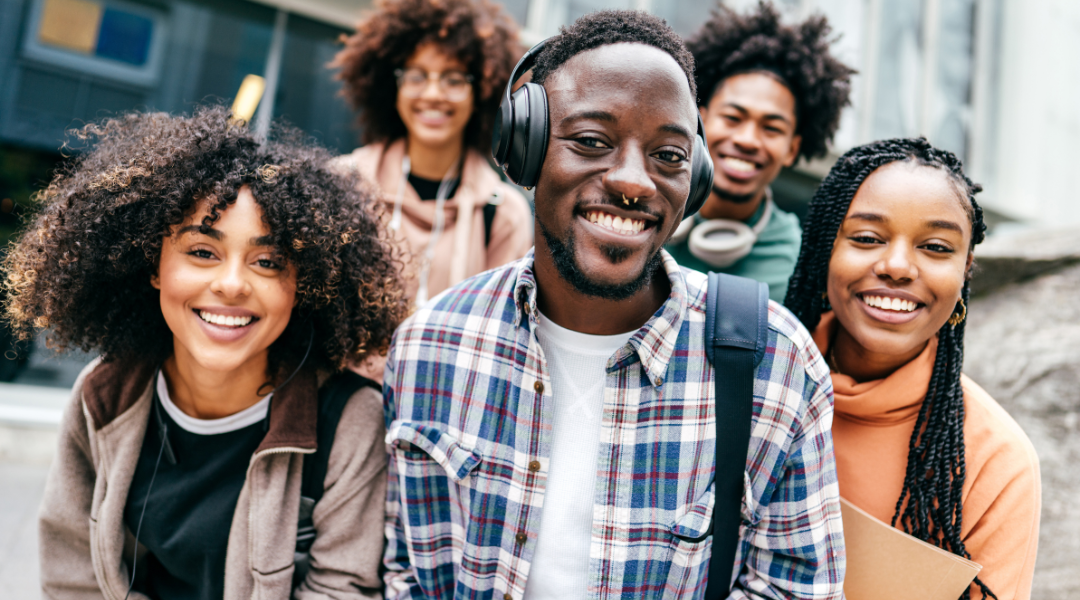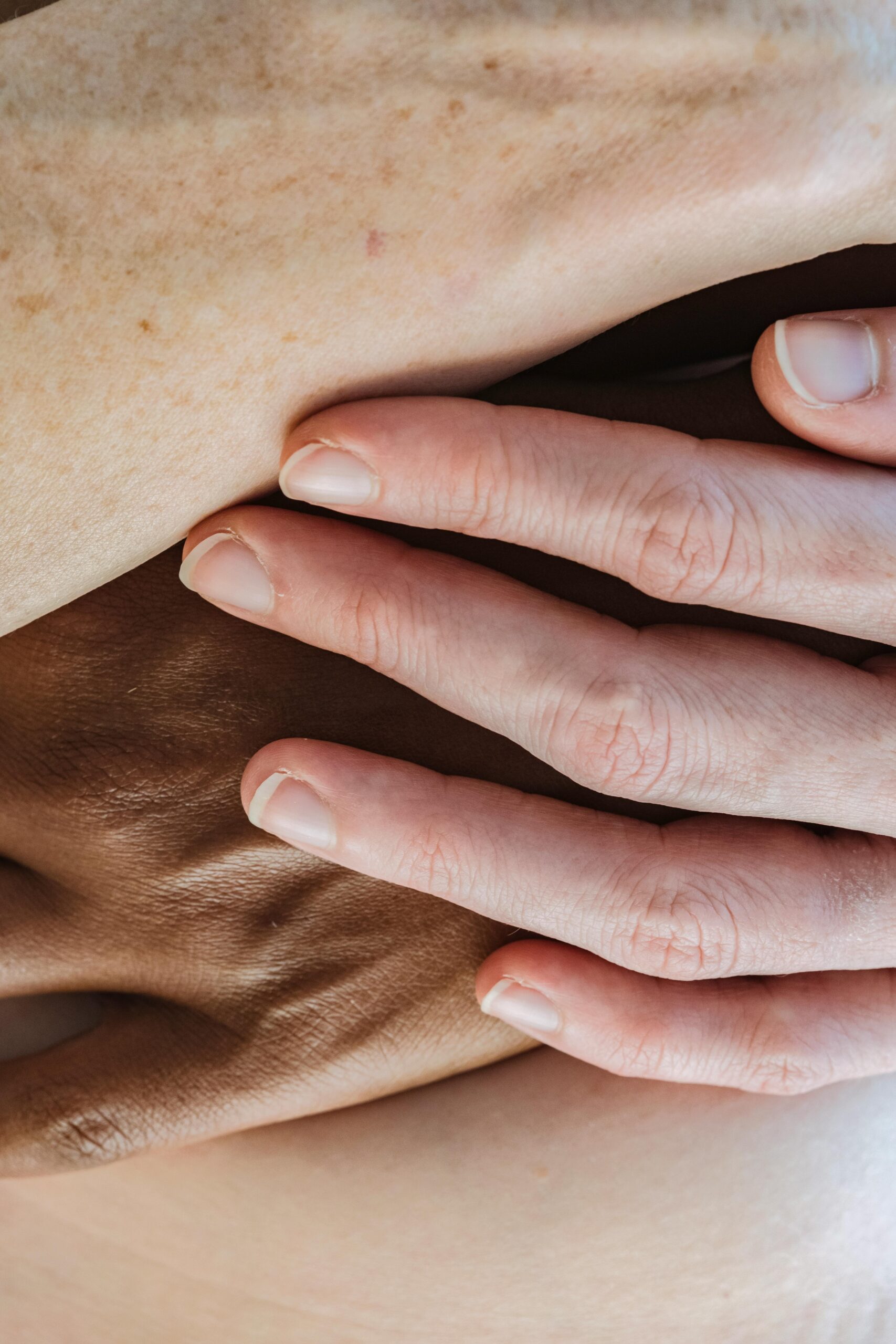November 19, 2024

By Josie Fome
In Canada, Black people are three times more likely to be arrested than white people, and Black youth are disproportionately represented in the child welfare system. Yet, studies show that many Canadians—especially those with privilege—struggle to understand how they can be effective allies in dismantling these racial inequities. As systemic racism continues to affect Black communities, the need for active and informed allyship is more critical than ever.
Allyship, in its truest sense, goes beyond simply recognizing injustice. It requires tangible actions, accountability,and a willingness to challenge and change the structures that perpetuate inequality. For many, allyship can feeldaunting, especially in a society where discussions about race and privilege are often filled with discomfort. But with the right tools and mindset, allies—especially those who benefit from systemic privilege—can play a pivotal role inthe fight for racial justice and inclusion. This article explores the vital role of allyship in creating a more equitable society for Black Canadians, the challenges that come with it, and how individuals can become more effective allies in the ongoing struggle for racial justice.

Growing Unrest
2020 was a cataclysmic year. And we continue to feel the effects of the events that took place that year to this day. The big, obvious one being the pandemic. While we were struggling to adjust to government-implemented measures to reduce the spread of the virus, another – arguably more insidious – virus was brewing. Ahmaud Arbery in February, Breonna Taylor in March, and then George Floyd in June caused the boiling pot of unrest to tip over. Millions took to the streets globally, declaring, reminding, begging to have acknowledged that Black Lives Matter.What resulted from that is black squares on Instagram (remember those?) and corporate statements to do better. Various organizations were committing to more diversity, equity, and inclusion. Individuals and organizations stood as allies, saying enough is enough.
At its core, allyship means more than just being a passive bystander to injustice—it is about taking deliberate, meaningful action in support of marginalized communities.
Fast forward to 2021, my phone vibrated alerting me of an incoming text. A friend had shared with me an opportunity specifically for Black people in my field. The organization funding the fellowship decided to put theirmoney behind their corporate statement by sponsoring for more diverse voices, specifically Black voices. I went through the process and was selected as a recipient. Instantly, I started hearing about how this would be a greatway to “get my foot in the door” in an industry that has traditionally been dominated by white men and then by white women. And so I started to look at it as just that, an opportunity. One that I wouldn’t have been afforded on my own…at least certainly not that early in my career.

True Allyship
At its core, allyship means more than just being a passive bystander to injustice—it is about taking deliberate, meaningful action in support of marginalized communities. According to Merriam-Webster, an ally is “a person or group that provides assistance and support in an ongoing struggle.” In thecontext of racial justice, being an ally means standing alongside Black communities, advocating for their rights, amplifying their voices, and working to dismantle the systems that perpetuate inequality. However, allyship is not a one-time gesture or a label to wear; it is a long-term commitment to understanding, unlearning, and acting.
[…] real change comes when allies use their privilege and platforms to push for systemic transformation.
True allyship requires recognizing and confronting one’s own privilege. For white Canadians, this means acknowledging the privileges afforded by their race in a society where Black and Indigenous people face systemic barriers. This can be uncomfortable. Understandably so, as it often involves grappling with the history of colonization, slavery, and racial discrimination that has shaped Canada’s social, political, and economic systems.But this discomfort is a necessary part of the allyship journey. It’s only by stepping outside of one’s own lived experience and recognizing the unique struggles faced by Black Canadians that true allyship can begin.
Active listening is a key ingredient for effective allyship. Allies must prioritize the voices of Black Canadians, stepping back to let them lead conversations about their own experiences.
However, it doesn’t stop there—it also demands action. Whether it’s challenging racism, advocating for policychanges, or supporting Black-led initiatives, real change comes when allies use their privilege and platforms to push for systemic transformation.
Problematic and performative or a step in the right direction?
The truth of the matter is, the fight for racial justice cannot be won without the active participation of white allies. White allyship is crucial because it challenges the structures that perpetuate racial inequality and gives marginalizedcommunities the support they need to create lasting change. White people, particularly those who benefit from systemic privilege, have a responsibility to confront the deeply entrenched racism in society, from the justice system to education, healthcare, and employment.

The role of white allies is especially vital in addressing anti-Black racism. While Black communities have long ledthe fight for justice, allies can amplify their voices, bring attention to issues that are often ignored, and push for policy reforms. White allies, with their access to power and privilege, can use their platforms—whether in theworkplace, at the political level, or in social settings—to challenge racial biases and demand equity. White allies must also hold other white people accountable, calling out racism when they see it, even when it’s uncomfortable or unpopular. It’s only through a sustained effort and a willingness to be uncomfortable that white allies help dismantle systemic racism and create a more just and inclusive society.
Effective allyship requires confronting uncomfortable truths, unlearning harmful behaviors, and committing to sustained action, not just momentary displays of support.
I think back to the opportunity I was afforded, the “foot in the door” as many called it. Sure, it was nowhere nearperfect, but it was a step in the right direction. No one is asking that one’s allyship be perfect, just genuine.
While allyship is essential, it is often criticized for being performative rather than impactful. Many allies, especially white ones, engage in surface-level actions—such as social media posts or token gestures—without addressing the deeper issues of systemic racism. This “performative allyship” often centers the ally’s feelings rather than the needs of marginalized communities.
You can typically spot performative allyship by noting its duration. How long before the “diversity hire” was let go? How long did the “inclusive initiative” last? Additionally, the Guardians Race to Dinner article and the Deconstructing Karen documentary have caused a divide as some see it as a step in the right direction and others see it as performative and continuing to center whiteness. White supremacy culture, as described in Dismantling Racism, can undermine allyship, fostering defensiveness, perfectionism, and individualism. It’s only normal as these topics are steeped in one’s identity and sense of self thus evoking deep emotions. Effective allyship requires confronting uncomfortable truths, unlearning harmful behaviors, and committing to sustained action, not just momentary displays of support.

Conclusion
Becoming a better ally requires consistent, active engagement. Allies should start by listening to marginalized voices, understanding their lived experiences, and amplifying their messages.
Educating yourself—whether through books, documentaries, or conversations—is essential for deepening understanding. Beyond learning, take action in your everyday life: challenge racism when you see it, support Black-owned businesses, and advocate for inclusive policies at work or in your community. Effective allyship also means holding others accountable, especially within your own social circles. Lastly, recognize that allyship is a journey; it’s about constant growth, reflection, and commitment to long-term change. This is not a “white vs Black” struggle…this is everyone’s struggle. We can’t be fully free until we’re all free.
Allyship is a vital tool in dismantling systemic racism and creating a more just and inclusive society. It is not a passiverole — it is an active, unrelenting commitment to dismantling systemic racism. Don’t be a bystander, ask yourself, “what else is possible?” Everyday provides an opportunity to take action. Start today.

Resources:
https://www.merriam-webster.com/dictionary/ally https://www.theguardian.com/world/2020/feb/03/race-to-dinner-party-racism-women https://www.brap.org.uk/post/the-problem-with-white-allyshiphttps://www.dismantlingracism.org/uploads/4/3/5/7/43579015/okun_-_white_sup_culture.pdfhttps://www.instagram.com/deconstructingkaren/?hl=fr
https://wbcollaborative.org/insights/intersectional-allyship-how-women-can-be-better-allies-of-ot her-women/
https://hbr.org/2020/11/be-a-better-ally
https://www3.ohrc.on.ca/en/interrupted-childhoods-over-representation-indigenous-and-black-ch ildren-ontario-child-welfare
https://www.cbc.ca/radio/ideas/canadian-court-system-lawyers-fairness-justice-1.6836073
Similar articles

January 20, 2025




